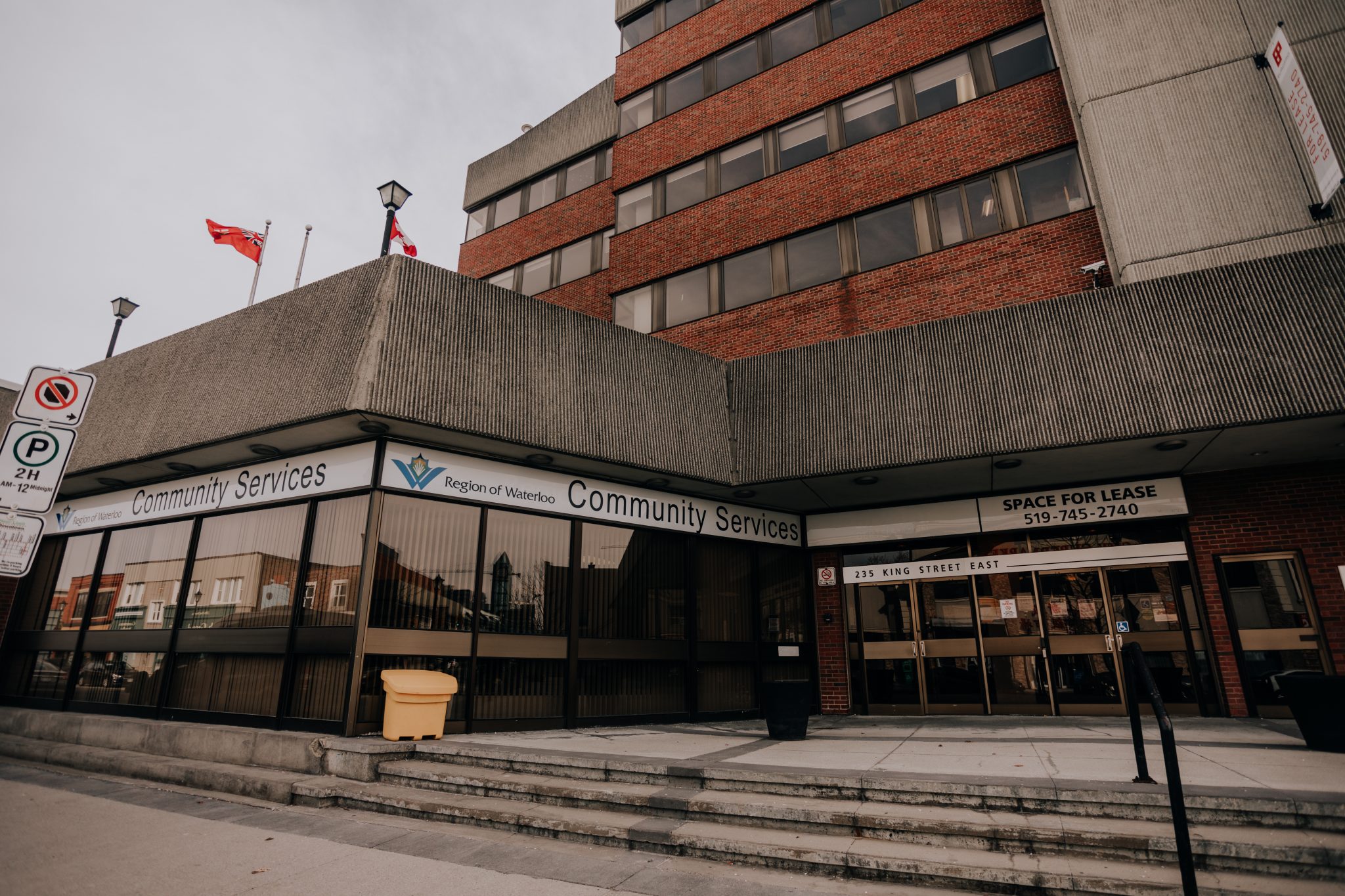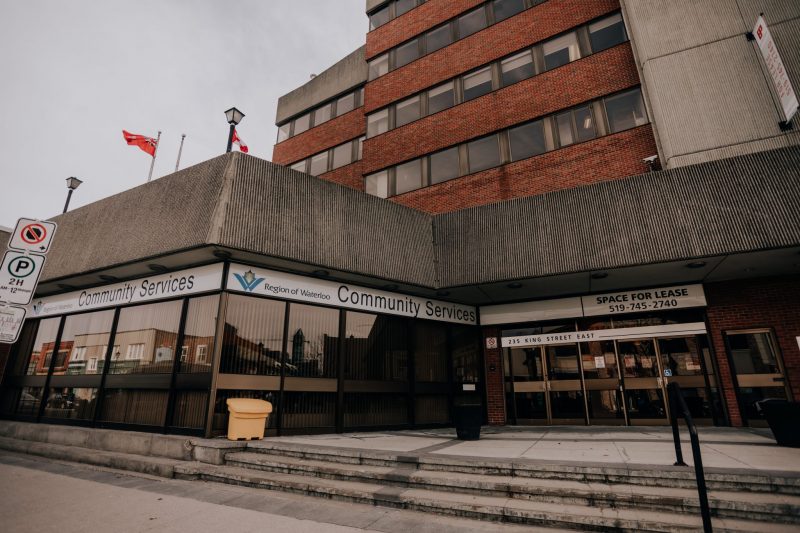‘Rage donations’ given to SHORE Centre


Trigger Warning: This article contains content that readers may find disturbing or upsetting.
Sam Oosterhoff, Niagara MPP and parliamentary assistant to Education Minister Stephen Lecce, garnered public criticism for speaking at the event “Gen Z: Challenging Abortion in Politics” on Mar. 17.
The event was organized by various student-led university groups which included the University of Waterloo Students for Life, and was held in collaboration with the National Campus Life Network (NCLN), an anti-abortion organization that claims to “[lead] young people to reject abortion.”
In a tweet pinned by the NCLN regarding American President Joe Biden’s pro-choice policy, the group stated, “Making abortions an ‘early priority’ is the same as Hitler who made it an early priority to kill the Jews.”
A representative responded to The Cord’s request for comment regarding Oosterhoff’s alignment with the organization and claimed he does not stand behind the views associated with the tweet but remains “pro-life” in his beliefs.
“I don’t think anyone is surprised to know that I am pro-life. I have always been very clear where I stand when it comes to protecting the right to life,” Oosterhoff said in an email statement.
“While I respect everyone’s right to hold and express their personal views, I don’t believe anything should be compared to the horror of the Holocaust.”
Carly Greco, an employee from SHORE Centre, a non-profit sexual and reproductive health organization located in downtown Kitchener, shared a tweet in response to Oosterhoff’s involvement with the NCLN that read, “I’m not saying that rage donation is the right way to fund a nonprofit, but if you give to @SHORECentreWR in honour of Sam Oosterhoff he will get a thank you card. #AbortionIsHealthcare.”
After the tweet was shared, the centre received a rise in donations that amounted to nearly $3,000 in just 36 hours.
“One of the biggest things that we do is help people access abortion services. When you donate to SHORE Centre, it can support our clinic itself, making sure that people who want to access medication abortion can do that in our clinic, and with support if they need it. That can include if someone might need some safety planning if for example they’re experiencing reproductive coercion and their partner or their family member doesn’t support their access,” TK Pritchard, executive director at SHORE Centre said.
“We can provide any other kind of counselling that they need around their abortion access … donations also support getting people to their surgical abortions. So if someone is going out of town, we have a program helping them get there. We have a driving program.”
“We also support people if they need to stay over in another town to access their services … as well as the systems navigation. Sometimes there’s a lot involved to get someone’s abortion booked, so donations support us to be able to do that with them,” they said.
There’s a lot of misinformation floating in the world about what abortion is, what the procedure is. You see a lot of anti-choice rhetoric use images that are not accurate, and so there’s a lot of effort put into making abortion look like something that it’s not. And, again, coming back to the idea that it is healthcare, but it is often very difficult healthcare to access, for a variety of reasons.
TK Pritchard, executive director at SHORE Centre
Pritchard believes that Oosterhoff’s anti-choice rhetoric and association with groups who are against abortion access further a prevalent stigma surrounding abortions in Canada. “I think you really have to think about people in positions of power, whether they’re politicians, doctors, educators—anyone in a position of power—who is holding anti-choice views and sharing them, and the fact that those views contribute significantly to stigma around abortion. And stigma itself is a huge barrier in accessing abortion,” Pritchard said.
“One of the biggest misconceptions about accessing abortion is that it’s easy. Accessing abortion in Canada is incredibly difficult for many reasons. There [are] many communities where they don’t have an abortion provider, and so a lot of folks have to travel quite far—sometimes hours by car, sometimes there’s plane rides involved.”
“That adds financial barriers, in terms of the cost of travel[and] in terms of how much time has to be taken off work,” they said.
Locally, surgical abortions are not available for people beyond 14 weeks, which is an obstacle that adds to the inaccessibility of abortion procedures in the area.
“In our own community here in Kitchener-Waterloo, people can only access surgical abortions up to 14 weeks. So if you are beyond 14 weeks, you’re going to have to leave our community, and again that adds travel cost, that adds time—all of those pieces and complicating factors,” Pritchard said.
“There’s a lot of misinformation floating in the world about what abortion is, what the procedure is. You see a lot of anti-choice rhetoric use images that are not accurate, and so there’s a lot of effort put into making abortion look like something that it’s not. And, again, coming back to the idea that it is healthcare, but it is often very difficult healthcare to access, for a variety of reasons.”
Understanding the roots of sexism and discrimination grounded within anti-choice discourse is something Pritchard believes is fundamental.
“When there’s strong anti-choice narratives in a community, that means that someone is less able to access their abortion, because people are more likely to be harassing them, more likely to not have support from their friends and family,” Pritchard said.
“Anti-choice rhetoric is also deeply-rooted in misogyny and control of women and trans people’s bodies. Understanding that that’s a huge part of this conversation, and that anti-choice conversations are not necessarily what they’re put out to be, but truly [are] about controlling people’s bodies, and it is about misogyny, and it is about telling women and trans people what to do with their bodies. And that’s a huge part of it.”
The NCLN did not respond to The Cord’s request for comment.


